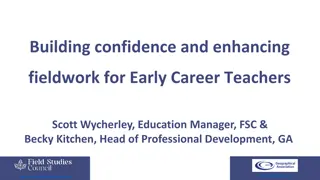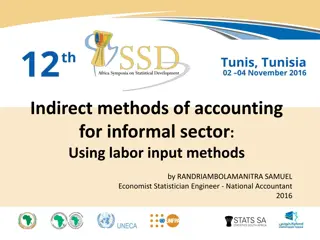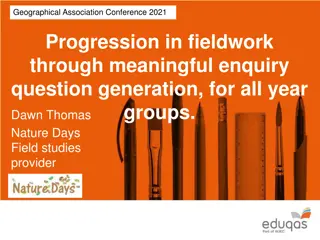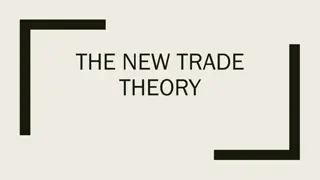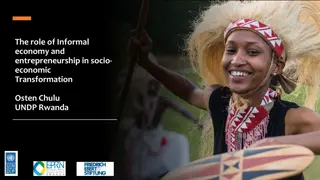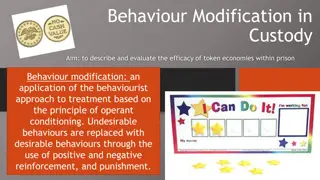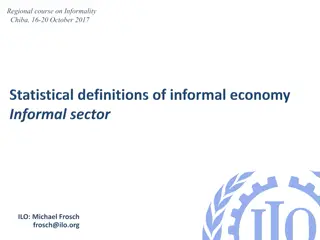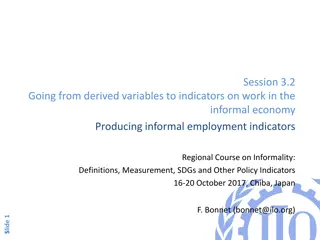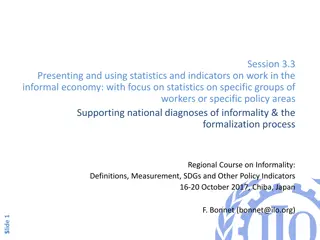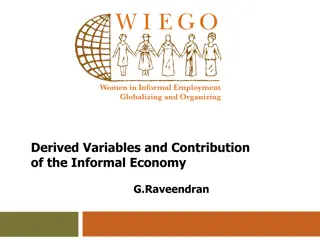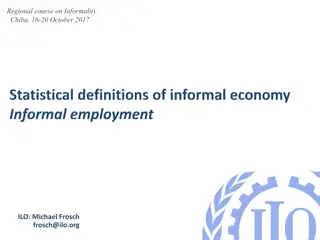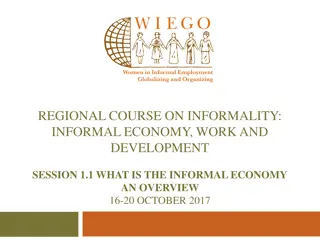Research Ethics in Informal Economies: Insights from Heather Settle's Fieldwork
Heather Settle's fieldwork in Cuba and Nairobi sheds light on the challenges of conducting research in informal economies. She highlights the need to protect the identities of research participants engaged in illegal activities for survival. Settle emphasizes the importance of safeguarding sensitive information and operating ethically when sharing participants' stories, showcasing key paradigms in research ethics.
Download Presentation

Please find below an Image/Link to download the presentation.
The content on the website is provided AS IS for your information and personal use only. It may not be sold, licensed, or shared on other websites without obtaining consent from the author.If you encounter any issues during the download, it is possible that the publisher has removed the file from their server.
You are allowed to download the files provided on this website for personal or commercial use, subject to the condition that they are used lawfully. All files are the property of their respective owners.
The content on the website is provided AS IS for your information and personal use only. It may not be sold, licensed, or shared on other websites without obtaining consent from the author.
E N D
Presentation Transcript
Sensitive Subjects Key Paradigm from a video by Heather Settle of Duke University Presented by Forrest Cammack
Cubas Informal Economy Heather Settle tells a story of going to Cuba to research the impact of econ. crisis on women. Part of the story she wound up with was that prostitution was making a comeback in Cuba because of limited economic options. She did her research with the intention of protecting the identities of those subjects who were in this profession. As the research progressed, however, she realized that actually most of her subjects were involved in illegal activity (turning to the informal economy for survival), and so she had to adjust her methods to protect the identities of all involved.
Nairobis Informal Economy Nairobi s slums are in a similar situation to the one in Cuba in that most of its residents are involved in illegal or extra-legal (untaxed) activity. The economic opportunities in the formal economy are very limited, forcing most slum dwellers to work outside of the law. As we do research, therefore, it will be important to protect the identities of all participants. This is a new thought for me, as Nairobi s informal economy seems such a commonplace part of life. Even though it is quite benign, it is still illegal, and there is the potential for harm to fall on research participants because of that.
Important Guidelines Heather mentions the importance of protecting information carefully (locking up computer, putting passwords on it) Not using details other than those which are absolutely necessary when telling a person s story. Painting Mama Mwangi aka Mama Mboga by Bezalel Ngabo from bananahillartgallery.com


